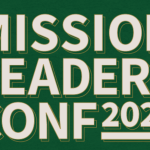We’re working on a series of articles for the January edition of Mission Frontiers and the lead article needs to define a disciple-making movement (DMM). Wow (not easy!). Would you please take a look at this PDF — https://brigada.org/wp-content/uploads/2020/10/DMM-definition-2020-10-17.pdf [Note: Edited on Oct. 17th to include comments made thus far.] then suggest any add-on or change? Thanks for your help!
10) Would You Help Us Define DMM Please?













I would probably choose to define DMM’s in terms of the process involved.
A DMM is a small group of people (eight or less ideally, so that each person can (1) participate, (2) share with the group and (3) discover for themselves) that focus in on a single Bible text in each meeting to discover for themselves what what the passage is teaching about (1) God, (2) about mankind and (3) one specific way in which they could choose to follow the text’s leading and obey Christ if they decide to do so. The group is also encouraged to share what they are discovering with others around them in the hope that new people will be drawn in, the group can multiply, and the new, emerging “leaders” can be discipled to lead their new group with success. Everything is saturated in prayer because it is the Spirit that draws people into the group, enables them to discover what God’s word is saying, and directs them in their sharing with others, resulting in new groups being formed.
Jeff, thanks for your ideas. I’ll look in the definition we’ve posted to make sure the spirit of your comment is shared.
Hi Doug, thanks for doing this, and I think it looks good so far. Personally, I prefer “Discipleship Movements” as the umbrella term as DMM is a strategy and it might be confusing.
However, I believe it is also important to explore the philosophical reasons and epistemological challenges for the need to define phenomenological realities. Semantic issues are part of every conversation, so what you are doing is normal and useful. It is good that you state that movements are messy and non-linear. However, a general caution is also in order for all of us. Sometimes an epistemic overconfidence on definitions may obscure what is happening on the ground or keeps us from recognizing the connections in-real-life with like phenomena. Creating categories can also make us into the “police” of a conversation that could have negative consequences. For instance, someone might say, “No, that movement doesn’t fit our definition so we will not consider it” when in reality is it much closer to the definition than the man-made categories allow. This could prevent learning on our part. Historically, many discipleship movements wouldn’t fit into a narrow DMM definition but they were still movements. So I think a tolerance for ambiguity in the definition of discipleship movements would be preferable, especially this relatively early stage of our missiological discourse on movements. This is not to say that your work above isn’t solid and helpful. :-)
-W
Warrick, great points. We’ll tweak the definition to make that clearer.
This is where I’m uncomfortable with DMM. I’m fully in agreement with the intended result, but this one has the feel of the Latest Method that will “win the world for Christ!”.
Although it’s something of thing that is generic to us Westerners, where our cultures have a strong emphasis on fixing or improving things, I think that one of our blind spots is in looking for some kind of Magic Formula that will do everything that we want to do. And I think that for those of us that are steeped in the influence of people like McGavaran and Winter, we’re especially vulnerable for looking for something that will do it all.
The problem with reducing things down to method and formula is that it’s too easy to expect that to be doing the work. If you do x, y, and z, then presto! you get the desired results. Unfortunately, that reduces things down to human effort, and tends to eliminate what the Spirit of God is doing, often uniquely suited to specific time, place and situation. Although there is a place for appropriate methodology, the reason that the world has not been won for Christ is not inadequate technology, or inadequate methodology, but inadequate obedience. And the obedience often calls us to do the hard things, rather than off-loading them onto our work-saving tools and methods.
I know that I’ve talked with DMM enthusiasts that insist that it’s not a methodology, and for some, that may be true. However, with the description I see here, it says “methodology” all over it. To me, if it’s a movement that is happening in the power and leading of God’s Spirit, it’s something that’s going to be happening predominantly organically, in ways that we neither expect or control. We can be a part of the process, and Jeff’s descriptions above are a good way of doing that. But when we start systematizing things, then we run a real risk of reducing things to formula and technique.
What I see here shows indications of that happening already, where there’s insider terminology, a vision statement, measures of progress (yet another tool to satiate our western needs for quantifiable progress), advanced practitioners (and corresponding training), and such. None of those are necessarily evil or improper, but they’re all things that are easily bundled into an overly-systematic approach, and I think that we ignore or dismiss them at our own peril.
Hi Zeb. Thanks for your input. We’ll go to even greater length to clarify the importance of understanding that DMM is a work of the Holy Spirit. We thought that the definition made that clear – but we’ll work harder. Curtis Sergeant likes to compare it this way: These strategies and tools are a bit like using a fork and spoon to eat. We all know that the fork and spoon have nothing to do with the food itself. The fork and the spoon don’t nourish us – directly. The food does. But they are indeed helpful tools. These strategies and tools, in a way, merely help us avoid some of the trappings of that which has blocked the Spirit from working previously. The point that you made in your comment was the same point we THOUGHT the definition made clear: None of this helps unless we start obeying. We’ll go to work on the definition and try to make that more emphatic too. Thanks for your response.
OK – we tried to make it clearer. See if that’s any better.
humm great question teach.
I can see you are testing my answer in “6.” above
thinking